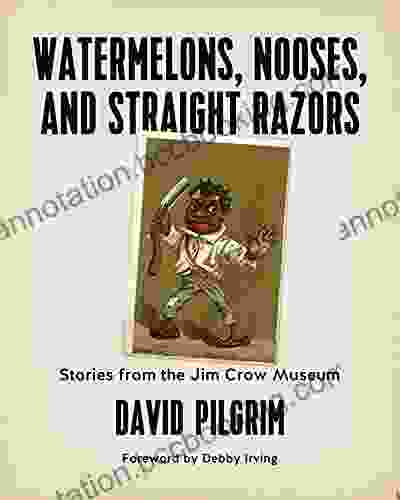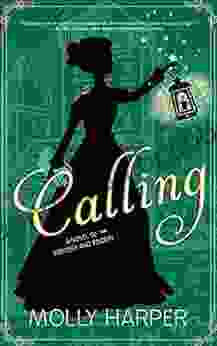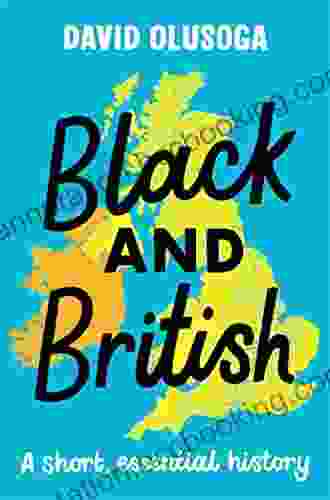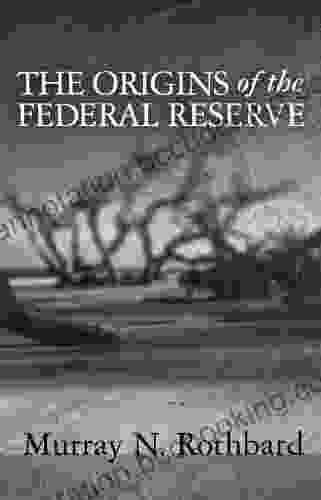The Origins of the Federal Reserve: Unraveling a Monetary Mystery

4.6 out of 5
| Language | : | English |
| File size | : | 349 KB |
| Text-to-Speech | : | Enabled |
| Screen Reader | : | Supported |
| Enhanced typesetting | : | Enabled |
| Word Wise | : | Enabled |
| Print length | : | 122 pages |
| Lending | : | Enabled |
A Pivotal Institution in Economic History
The Federal Reserve, a central bank of paramount importance in the United States, has played a pivotal role in shaping the nation's economy and steering it through both prosperous and tumultuous times. Its origins, however, remain shrouded in a veil of secrecy and controversy, making it an alluring subject for historians, economists, and financial enthusiasts alike.
In this comprehensive guide, we delve into the captivating origins of the Federal Reserve. We unveil the historical context, key personalities, and contentious debates that led to its creation. Through a captivating narrative and meticulous research, we aim to shed light on the intricate web of events that gave rise to this enigmatic institution.
Precursors and Economic Turmoil
To fully grasp the origins of the Federal Reserve, one must venture back to the late 19th century, a period marked by economic turmoil and financial instability. The Panic of 1873, a severe financial crisis, highlighted the fragility of the American banking system and exposed its vulnerability to external shocks.
In the wake of the panic, numerous proposals emerged to establish a central bank that could provide stability to the financial system. However, these proposals faced staunch opposition from powerful banking interests, who feared losing control over monetary policy.
A Catalyst for Change
The Panic of 1907, a major financial crisis that shook the nation to its core, served as a catalyst for the creation of the Federal Reserve. The panic exposed the shortcomings of the existing financial system and reignited the debate over the need for a central bank.
In the aftermath of the crisis, President William Howard Taft convened the National Monetary Commission to investigate the causes of the panic and propose solutions. The commission's findings, published in 1912, recommended the establishment of a central bank with the authority to regulate the nation's money supply and provide liquidity to the banking system in times of crisis.
The Birth of a Central Bank
On December 23, 1913, after a prolonged and contentious debate, President Woodrow Wilson signed the Federal Reserve Act into law. The act created the Federal Reserve System, a network of 12 regional Federal Reserve Banks overseen by a central board in Washington, D.C.
The Federal Reserve Act granted the newly created central bank a wide range of powers, including the authority to set interest rates, regulate the money supply, and supervise the banking system. These powers have enabled the Federal Reserve to play a pivotal role in stabilizing the economy, managing inflation, and preventing financial crises.
A History of Scrutiny
Throughout its existence, the Federal Reserve has been the subject of numerous controversies and criticisms. Some critics have argued that the central bank is too powerful and that its decisions have favored the interests of large banks at the expense of the general public.
Others have questioned the independence of the Federal Reserve, arguing that its close ties to the government and the banking industry compromise its ability to make objective decisions. Despite these criticisms, the Federal Reserve remains a vital institution in the American economy, and its role in managing the nation's monetary policy is essential for maintaining economic stability and growth.
A Legacy of Monetary Management
The Federal Reserve, a central bank steeped in history and controversy, has played a profound role in shaping the modern economy. Its origins, rooted in the economic turmoil of the late 19th and early 20th centuries, reveal a complex interplay of historical events, economic theories, and political debates.
From its inception, the Federal Reserve has faced scrutiny and criticism, yet its importance in maintaining economic stability and preventing financial crises remains undeniable. As the nation navigates the complexities of the 21st century economy, the Federal Reserve will undoubtedly continue to be a pivotal player in shaping its monetary destiny.
Sources and Further Reading
- The Federal Reserve: A History by Martin Mayer
- The Origins of the Federal Reserve System by Murray N. Rothbard
- The Panic of 1907: Lessons Learned from the Financial Crisis of 1907 by Robert Sobel
- The Federal Reserve System: Purposes and Functions by the Federal Reserve Bank of New York
- The Federal Reserve and the Economy by Ben S. Bernanke
4.6 out of 5
| Language | : | English |
| File size | : | 349 KB |
| Text-to-Speech | : | Enabled |
| Screen Reader | : | Supported |
| Enhanced typesetting | : | Enabled |
| Word Wise | : | Enabled |
| Print length | : | 122 pages |
| Lending | : | Enabled |
Do you want to contribute by writing guest posts on this blog?
Please contact us and send us a resume of previous articles that you have written.
 Book
Book Novel
Novel Page
Page Chapter
Chapter Text
Text Story
Story Genre
Genre Reader
Reader Library
Library Paperback
Paperback E-book
E-book Magazine
Magazine Newspaper
Newspaper Paragraph
Paragraph Sentence
Sentence Bookmark
Bookmark Shelf
Shelf Glossary
Glossary Bibliography
Bibliography Foreword
Foreword Preface
Preface Synopsis
Synopsis Annotation
Annotation Footnote
Footnote Manuscript
Manuscript Scroll
Scroll Codex
Codex Tome
Tome Bestseller
Bestseller Classics
Classics Library card
Library card Narrative
Narrative Biography
Biography Autobiography
Autobiography Memoir
Memoir Reference
Reference Encyclopedia
Encyclopedia Zondervan
Zondervan Lori A Smolin
Lori A Smolin Nora Shalaway Carpenter
Nora Shalaway Carpenter Juan Sasturain
Juan Sasturain Bob Davis
Bob Davis Monica Swanson
Monica Swanson John Potvin
John Potvin John M Perkins
John M Perkins Janet Margot
Janet Margot David Nash
David Nash Ramie Targoff
Ramie Targoff Marian Leah Knapp
Marian Leah Knapp Jim Green
Jim Green Greg Powell
Greg Powell T A Barron
T A Barron Sarah Maclean
Sarah Maclean Christopher Hitchens
Christopher Hitchens Darja Wagner Ph D
Darja Wagner Ph D Robin Green
Robin Green Kindra Hall
Kindra Hall
Light bulbAdvertise smarter! Our strategic ad space ensures maximum exposure. Reserve your spot today!

 Aubrey BlairWorkplace Romance Set In Brooklyn: A Captivating Tale Of Love, Betrayal, And...
Aubrey BlairWorkplace Romance Set In Brooklyn: A Captivating Tale Of Love, Betrayal, And...
 Bradley DixonMaster Maternal and Pediatric Nursing with Your Comprehensive Study Guide: A...
Bradley DixonMaster Maternal and Pediatric Nursing with Your Comprehensive Study Guide: A...
 Ken SimmonsResistance, Deception, and Betrayal in Occupied France: Uncovering the Hidden...
Ken SimmonsResistance, Deception, and Betrayal in Occupied France: Uncovering the Hidden... Esteban CoxFollow ·18k
Esteban CoxFollow ·18k Levi PowellFollow ·11.3k
Levi PowellFollow ·11.3k Josh CarterFollow ·14.4k
Josh CarterFollow ·14.4k Gordon CoxFollow ·15.9k
Gordon CoxFollow ·15.9k Miguel de CervantesFollow ·2.7k
Miguel de CervantesFollow ·2.7k Richard WrightFollow ·2k
Richard WrightFollow ·2k Kurt VonnegutFollow ·2.8k
Kurt VonnegutFollow ·2.8k Derek BellFollow ·17.9k
Derek BellFollow ·17.9k

 Voltaire
VoltaireStories From The Jim Crow Museum: Unveiling the Haunting...
A Journey into the Depths of...

 F. Scott Fitzgerald
F. Scott FitzgeraldCalling Sorcery And Society: Illuminating the...
: The Alluring Embrace of Sorcery ...

 Marcel Proust
Marcel ProustBranding Bud: Unveiling the Green Rush
As the legalization...

 Henry Wadsworth Longfellow
Henry Wadsworth LongfellowColorful Dreamer: The Story of Artist Henri Matisse
Henri Matisse was a French artist...

 Adrian Ward
Adrian WardDelving into the Tapestry of Black British Identity: A...
In the realm of historical...
4.6 out of 5
| Language | : | English |
| File size | : | 349 KB |
| Text-to-Speech | : | Enabled |
| Screen Reader | : | Supported |
| Enhanced typesetting | : | Enabled |
| Word Wise | : | Enabled |
| Print length | : | 122 pages |
| Lending | : | Enabled |







